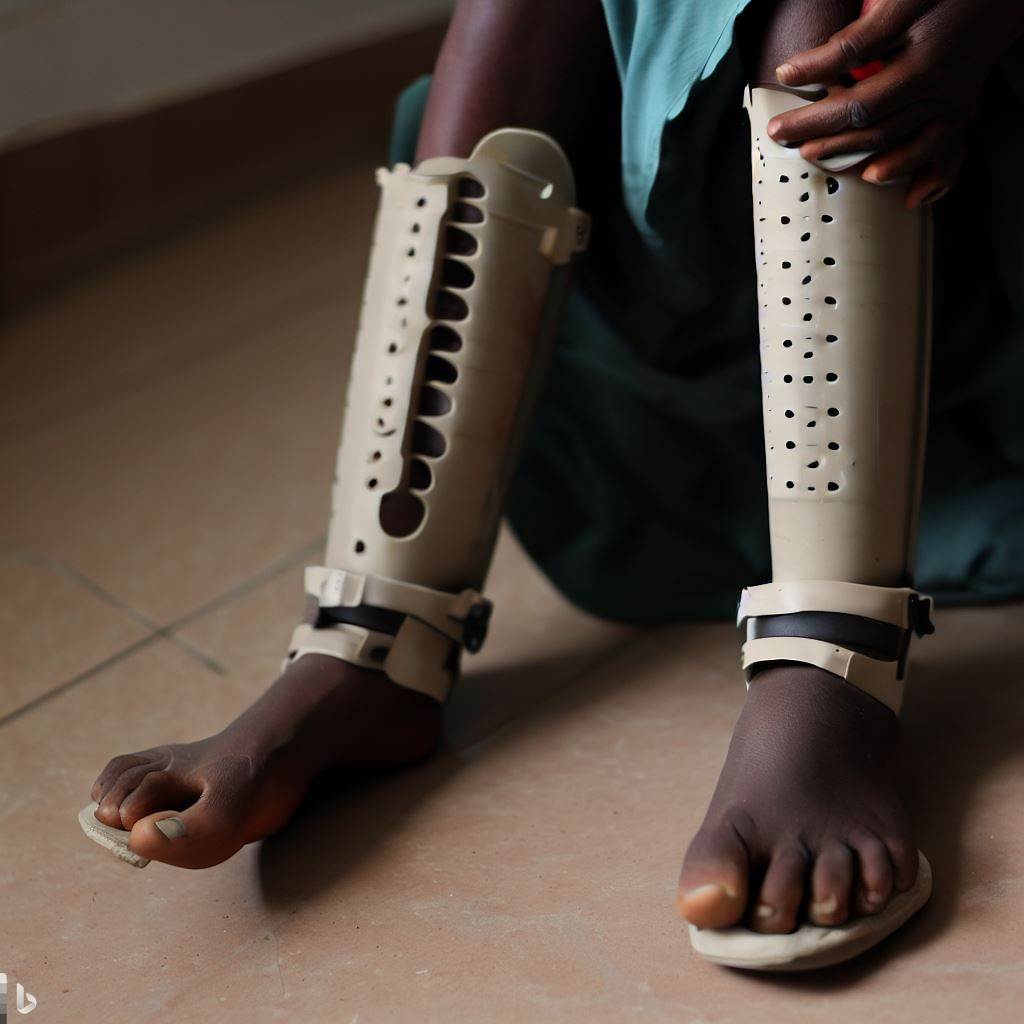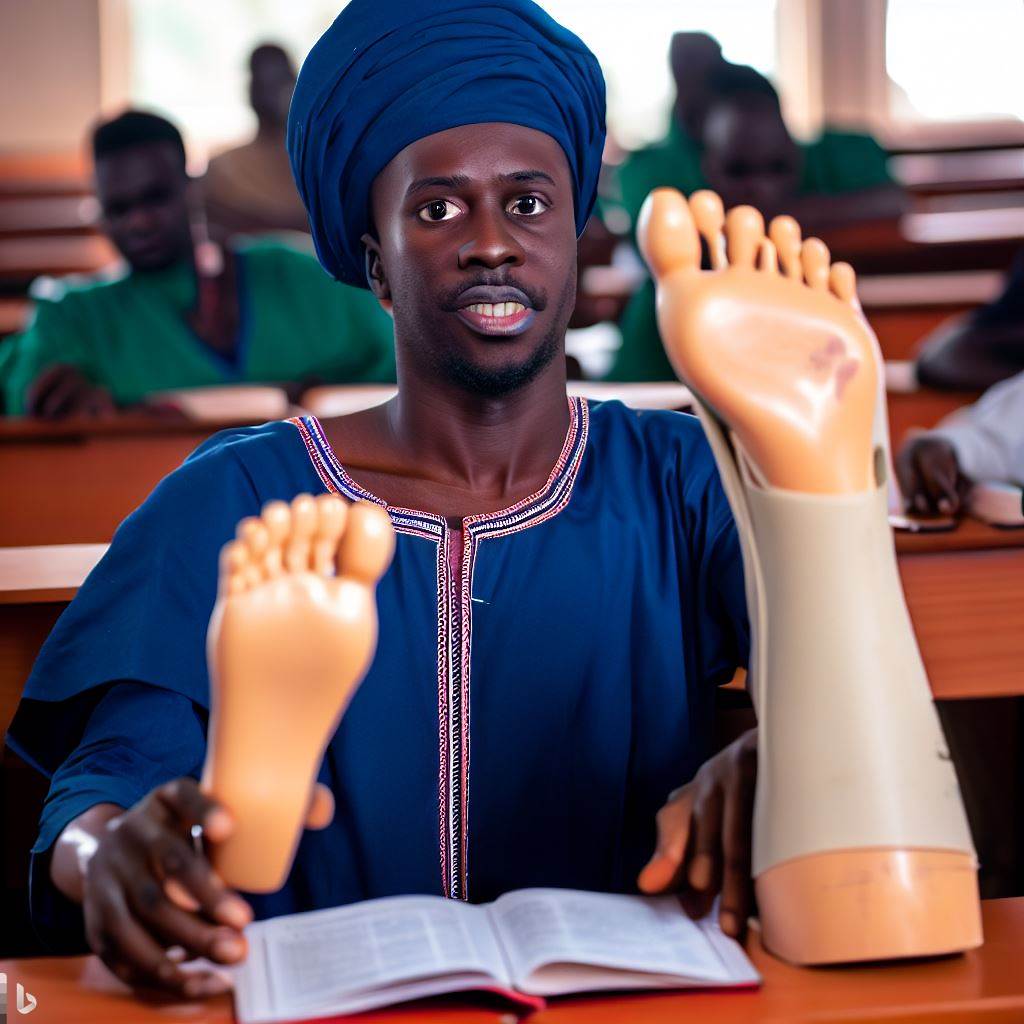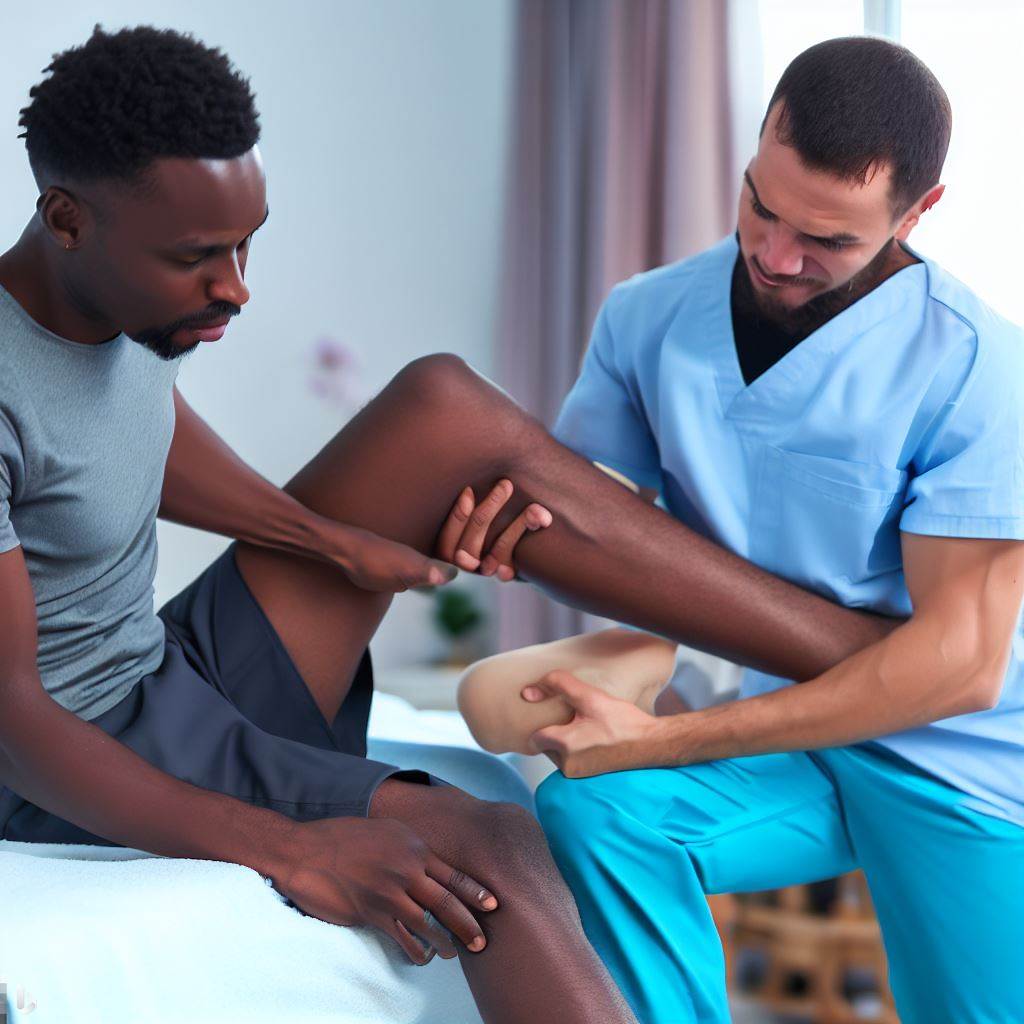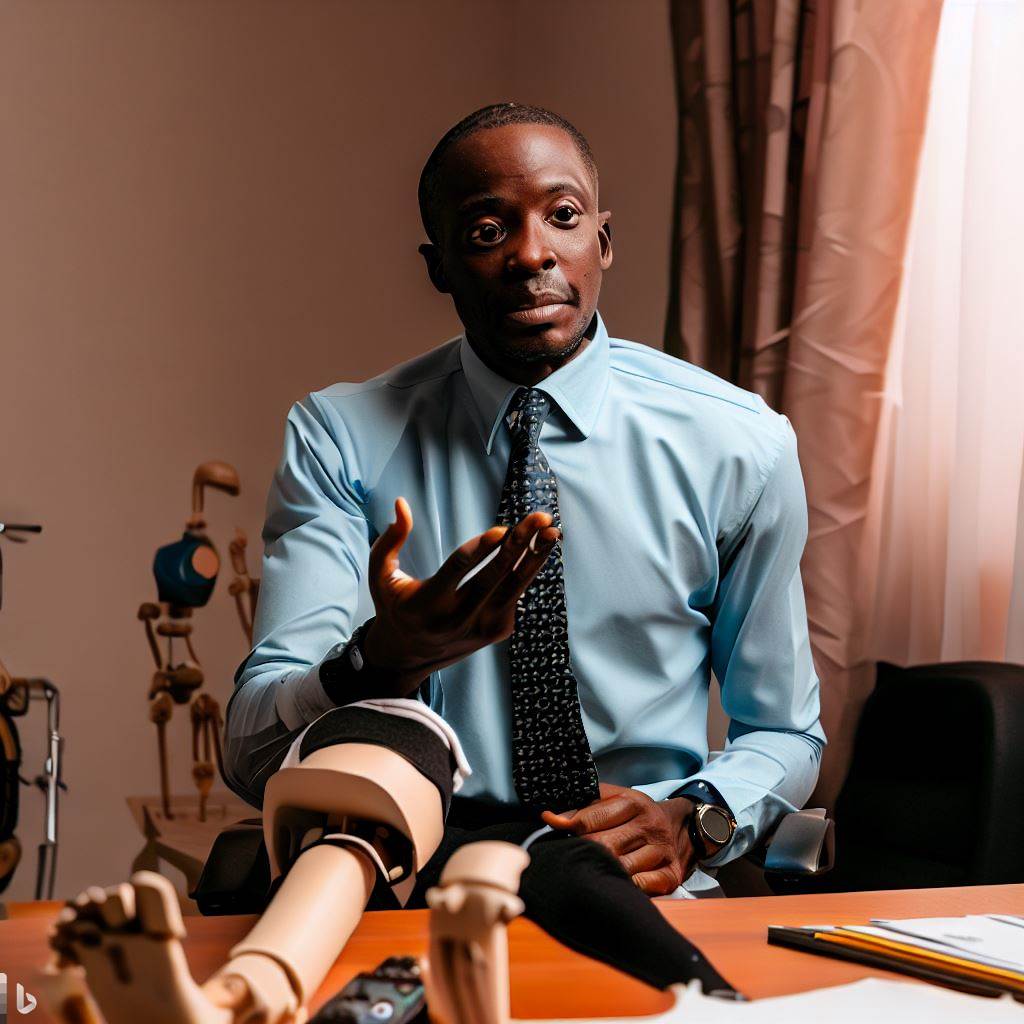Introduction
Orthotics/prosthetics is a specialized field that focuses on providing assistive devices such as braces and artificial limbs to individuals with physical disabilities or injuries, ultimately enhancing their mobility and quality of life.
Nigeria, with a diverse and rapidly growing population of over 200 million people, serves as a unique setting for orthotic/prosthetic patient experiences.
However, the country’s healthcare system faces several challenges, including limited resources and infrastructure.
Despite these obstacles, dedicated healthcare facilities and professionals in Nigeria strive to offer comprehensive orthotic/prosthetic care to patients.
Their commitment to improving the lives of individuals with physical disabilities showcases the resilience and determination within the healthcare sector in Nigeria.
In summary, as orthotic/prosthetic patient experiences continue to shape in Nigeria, it becomes essential to address the existing challenges and support the efforts of healthcare providers to ensure a better quality of life for those in need.
Read: Top Orthotic and Prosthetic Institutions in Nigeria
Orthotic/Prosthetic Patient Experiences in Nigeria: Challenges
Orthotic and prosthetic patient experiences in Nigeria face several challenges, which hinder their access to appropriate care and support.
These challenges can be categorized into three main areas: lack of awareness and understanding, limited access to devices, and a shortage of skilled professionals.
Lack of Awareness and Understanding
Orthotic Prosthetic Patient Experiences in Nigeria face significant challenges, with one of the primary obstacles being the lack of awareness and understanding surrounding orthotics and prosthetics.
Educational resources are limited, leading to insufficient public knowledge about these devices and their benefits.
Moreover, prevailing stigmas and misconceptions create barriers for patients seeking care, deterring them from seeking the help they need.
Read: The Journey to Becoming a Registered Nurse in Nigeria
Limited Access to Orthotic/Prosthetic Devices
Another major challenge is the limited access to orthotic and prosthetic devices, primarily due to their high costs.
Many patients find these devices unaffordable, exacerbated by the lack of adequate insurance coverage.
Transform Your Career in Nigeria
Discover unmatched expertise with our personalized Career Consulting service. Navigate Nigeria’s job market with a strategy tailored just for you.
Get StartedAdditionally, geographical barriers make it difficult for patients in remote areas to access orthotic/prosthetic services.
The scarcity of healthcare infrastructure further compounds the issue, hindering the availability of these devices in Nigeria.
Shortage of Skilled Professionals
The shortage of skilled professionals is a pressing concern affecting orthotic and prosthetic patient experiences in Nigeria.
The country lacks specialized training programs for orthotic/prosthetic professionals, resulting in a scarcity of experts.
The situation is worsened by the phenomenon of brain drain, where skilled practitioners emigrate to seek better opportunities abroad.
Consequently, this leaves a significant gap in the availability of skilled professionals, hampering patients’ access to appropriate care and support.
In general, Orthotic Prosthetic Patient Experiences in Nigeria encounter several challenges.
The lack of awareness and understanding, limited access to devices, and the shortage of skilled professionals significantly impact the quality of care and support available to patients.
Addressing these issues is crucial to improve the overall well-being of orthotic and prosthetic patients in Nigeria.
Read: Nigeria’s Orthotics and Prosthetics: Historical Overview
Orthotic/Prosthetic Patient Experiences in Nigeria: Perspectives
Personal stories and experiences of orthotic/prosthetic patients
Orthotic/prosthetic patient experiences in Nigeria provide valuable insight into the challenges and triumphs faced by individuals living with mobility impairments.
Through personal stories and interviews with healthcare professionals, a deeper understanding of the current state of orthotics/prosthetics in Nigeria can be gained, along with recommendations for improvement.
Personal Stories and Experiences of Orthotic/Prosthetic Patients
Challenges Faced in Daily Life
Orthotic/prosthetic patients in Nigeria often encounter numerous challenges in their daily lives.
These challenges include limited access to quality prosthetic devices, inadequate rehabilitation services, and societal stigmatization.
Many individuals face difficulties in finding employment, education, and accessible public transportation.
These obstacles hinder their independence and overall quality of life.
Success Stories and Achievements
Despite the challenges, there are also inspiring success stories and notable achievements among orthotic/prosthetic patients in Nigeria.
Many individuals have overcome limitations imposed by their disabilities and have excelled in various fields, including sports, education, and advocacy.
These success stories not only showcase the resilience and determination of the patients but also serve as sources of inspiration for others facing similar challenges.
Read: The Role of Exercise Physiology in Nigeria’s Sports Industry
Interviews with Healthcare Professionals in the Field
Insights into the Current State of Orthotics/Prosthetics in Nigeria
Interviews with healthcare professionals who specialize in orthotics/prosthetics provide valuable insights into the current state of these services in Nigeria.
These professionals emphasize the need for increased government investment in research and development, access to affordable prosthetic devices, and improved training programs for healthcare providers.
They highlight the importance of a collaborative approach between different stakeholders to address the existing gaps and meet the diverse needs of orthotic/prosthetic patients.
Recommendations for Improvement
Based on their experiences and expertise, healthcare professionals in Nigeria offer recommendations for improving orthotic/prosthetic services.
Publish Your Professional Profile, Business or Brand
Showcase your expertise, gain trust, and boost visibility instantly on Professions.ng.
Publish NowThese recommendations include establishing specialized clinics and rehabilitation centers across the country, enhancing the supply chain for prosthetic devices, investing in research and innovation, and promoting inclusive policies and legislation.
They stress the importance of raising awareness and dispelling myths surrounding disabilities to eliminate stigma and promote social inclusion.
In short, understanding orthotic/prosthetic patient experiences in Nigeria requires exploring personal stories, challenges faced in daily life, success stories, and achievements.
Additionally, insights from healthcare professionals shed light on the current state of orthotics/prosthetics and provide recommendations for improvement.
By addressing these perspectives and working towards a more inclusive society, Nigeria can enhance the lives of orthotic/prosthetic patients and ensure their full participation in all aspects of society.
Read: Success Stories of Nigerian Orthotists and Prosthetists

Uncover the Details: How Counseling Contributes to Nigeria’s Mental Health
Initiatives and Progress in Orthotics/Prosthetics in Nigeria
Overview of existing organizations and initiatives
- Government initiatives: The Nigerian government has implemented various programs to improve orthotics/prosthetics services.
- Non-governmental organizations: Several NGOs have also played a significant role in addressing the needs of orthotic/prosthetic patients.
Success stories and impact of these initiatives
- Increased access to devices: These initiatives have led to a higher availability of orthotics/prosthetics devices for patients in Nigeria.
- Improved awareness and education: Efforts by organizations and initiatives have increased awareness about orthotics/prosthetics and improved education among healthcare professionals and the general public.
Challenges and future directions
While progress has been made, challenges still exist in the field of orthotics/prosthetics in Nigeria.
Some of these challenges include:
- Lack of funding and resources: The government and NGOs often face financial constraints, limiting their ability to expand their initiatives.
- Shortage of trained professionals: There is a shortage of trained orthotists/prosthetists in Nigeria, hindering the delivery of high-quality services.
- Infrastructure and accessibility: Accessibility to orthotic/prosthetic services is limited in remote areas due to inadequate infrastructure and transportation.
Despite these challenges, the future of orthotics/prosthetics in Nigeria looks promising. Some future directions to address the challenges include:
- Increased funding: Government and NGOs should allocate more funds to orthotics/prosthetics services to expand initiatives and improve patient outcomes.
- Training and education: Efforts should be made to train more orthotists/prosthetists to meet the growing demand for services and ensure quality care.
- Improved infrastructure: Investments in infrastructure development and transportation systems will enhance accessibility to orthotic/prosthetic services in remote areas.
- Collaborations and partnerships: Government, NGOs, and healthcare organizations should work together to leverage resources and expertise to overcome challenges.
In review, Nigeria has made significant progress in orthotics/prosthetics initiatives, with the government and NGOs actively working to improve access, awareness, and education.
While challenges persist, future directions aim to address these issues and ensure better orthotic/prosthetic services for patients in Nigeria.
Read: Understanding the Salary Scale for Lab Technicians in Nigeria
Conclusion
In Nigeria, orthotic/prosthetic patients face a range of challenges that hinder their access to proper healthcare and support.
Limited access to healthcare, lack of awareness and education, and inadequate funding and resources are some of the pressing issues.
However, amidst these challenges, there have been promising developments and possibilities for improvement.
NGOs and healthcare organizations have stepped up to provide services and training, while technological advancements in orthotics/prosthetics offer hope for better patient experiences.
To create a lasting impact, there is a crucial call to action. Governments, organizations, and individuals must prioritize increased funding, training, and awareness campaigns.
These efforts will significantly improve the lives of orthotic/prosthetic patients in Nigeria.
In a nutshell, the challenges faced by orthotic/prosthetic patients in Nigeria are undeniable. But with the progress made by NGOs and advancements in technology, there is an opportunity for positive change.
By investing more support and resources, we can make a significant difference in enhancing the quality of life for orthotic/prosthetic patients in Nigeria.
Let us unite in ensuring that these patients receive the care they need and deserve.
[E-Books for Sale]
The Nigerian Professional's Playbook: Strategies to Accelerate Your Career and Build Lasting Wealth
₦2,000 • 10 Chapters • 33 pages
Fed Up with Stagnant Salaries and Career Frustration? Grab the Proven Nigerian Playbook for Just ₦2,000!
See All 10 Chapters of this E-Book
500 Cutting-Edge Tech Startup Ideas for 2024 & 2025: Innovate, Create, Dominate
₦3,000 • 500 Tech Startup Ideas • 62 pages
You will get inspired with 500 innovative tech startup ideas for 2024 and 2025, complete with concise descriptions to help you kickstart your entrepreneurial journey in AI, Blockchain, IoT, Fintech, and AR/VR.
See All 500 Tech Startup Ideas of this E-Book
Mastering Project Management: A Comprehensive Guide to GanttPRO and Microsoft Project
₦3,150 • 10 Chapters • 102 pages
Explore 'Mastering Project Management,' an e-book guide on using GanttPRO and MS Project for optimal project success.
See All 10 Chapters of this E-Book
Migration Mastery: From Nigeria to Abroad
₦2,450 • 30 Chapters • 244 pages
Unlock success in your migration from Nigeria with our e-book. Comprehensive guide for a smooth transition abroad.
See All 30 Chapters of this E-Book
The Future of Work in Nigeria: Trends, Professions, and Possibilities
₦3,500 • 24 Chapters • 188 pages
Navigate Nigeria's evolving job landscape with our e-book on the future of work. Gain key insights into tech innovations and cultural shifts. Stay ahead; purchase today.
See All 24 Chapters of this E-Book
50 Simple Tips to Stay Ahead of Your Peers
₦1,750 • 5 Chapters • 25 pages
Master success with '50 Simple Tips to Stay Ahead of Your Peers'. Unlock strategies to outshine and excel in every aspect of life.







